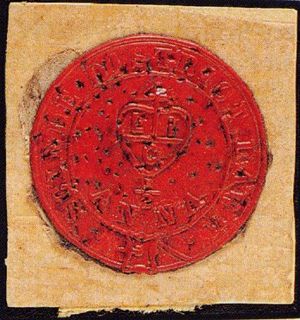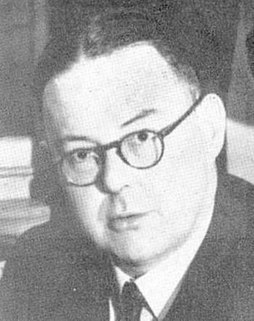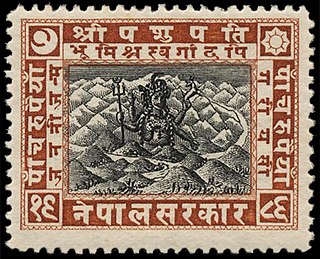Harrison Donald Seaman Haverbeck or H.D.S. Haverbeck, FRPSL, RDP (October 9, 1913 – September 26, 1986 New York), was a noted philatelist and philatelic journalist, whose interests centered on India and Indian states, Tibet and Nepal.

New York, officially the State of New York, is a state in the Northeastern United States. New York was one of the original Thirteen Colonies that formed the United States. With an estimated 19.54 million residents in 2018, it is the fourth most populous state. To distinguish the state from the city in the state with the same name, it is sometimes called New York State.

Philatelic literature is written material relating to philately, primarily information about postage stamps and postal history.

This is a survey of the postage stamps and postal history of India.
Contents
From 1948 to 1986 he served on the editorial board of the New York publication, Collectors Club Philatelist, and succeeded Henry Goodkind as editor in 1970. He wrote extensively in the journal, and served the Collectors Club of New York in many other offices. It awarded him its Lichtenstein medal in 1966.
The Collectors Club, often referred to as the Collectors Club of New York, is a private club and philatelic society in New York City. Founded in 1896, it is one of the oldest existing philatelic societies in the United States. Its stated purpose is "to further the study of philately, promote the hobby and provide a social, educational, and non-commercial setting for the enthusiastic enjoyment of our common passion".
Haverbeck served on the Expert Committee of the Philatelic Foundation. [1]
Haverbeck wrote valuable handbooks for the guidance of collectors and specialists. A definitive article on the Scinde Dawk appeared in 1965. Later, a series of Haverbeck's brief articles about the postage stamps and postal history of the various feudatory states of India appeared in Collectors Club Philatelist.

Scinde Dawk was a very old postal system of runners that served the Indus Valley of Sindh, an area of present-day Pakistan. The term also refers to the first adhesive postage stamps in Asia, the forerunners of the adhesive stamps used throughout India, Burma, the Straits Settlements and other areas controlled by the British East India Company. The name derives from the words “Scinde”, the British spelling of the name of the province of Sindh, and “Dawk”, the anglicised spelling of the Hindustani word “Dak” or Post.

Postal history is the study of postal systems and how they operate and, or, the study of the use of postage stamps and covers and associated postal artifacts illustrating historical episodes in the development of postal systems. The term is attributed to Robson Lowe, a professional philatelist, stamp dealer and stamp auctioneer, who made the first organised study of the subject in the 1930s and described philatelists as "students of science", but postal historians as "students of humanity". More precisely, philatelists describe postal history as the study of rates, routes, markings, and means.
Haverbeck received the Alfred F. Lichtenstein Memorial Award for Distinguished Service to Philately from Collectors Club of New York in 1966 and signed the Roll of Distinguished Philatelists in 1970. He was inducted into the American Philatelic Society's Hall of Fame in 1987. [2]

The Roll of Distinguished Philatelists (RDP) is a philatelic award of international scale, created by the Philatelic Congress of Great Britain in 1921. The Roll consists of three pieces of parchment to which the signatories add their names.

The American Philatelic Society (APS) is the largest nonprofit stamp collecting foundation of philately in the world. Both the membership and interests of the society are worldwide.




